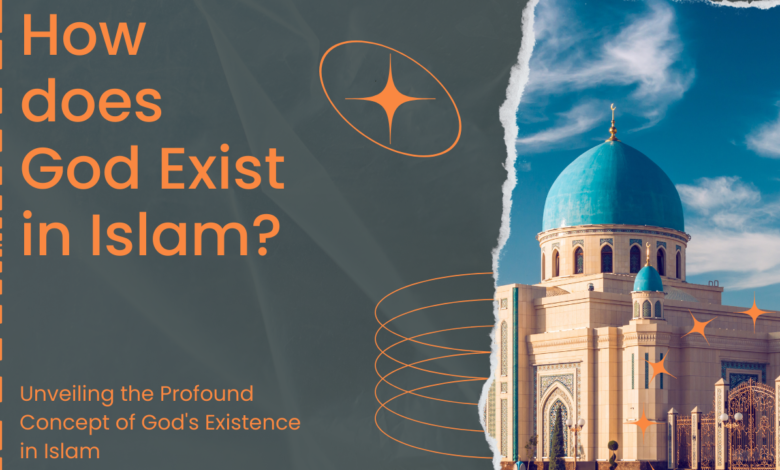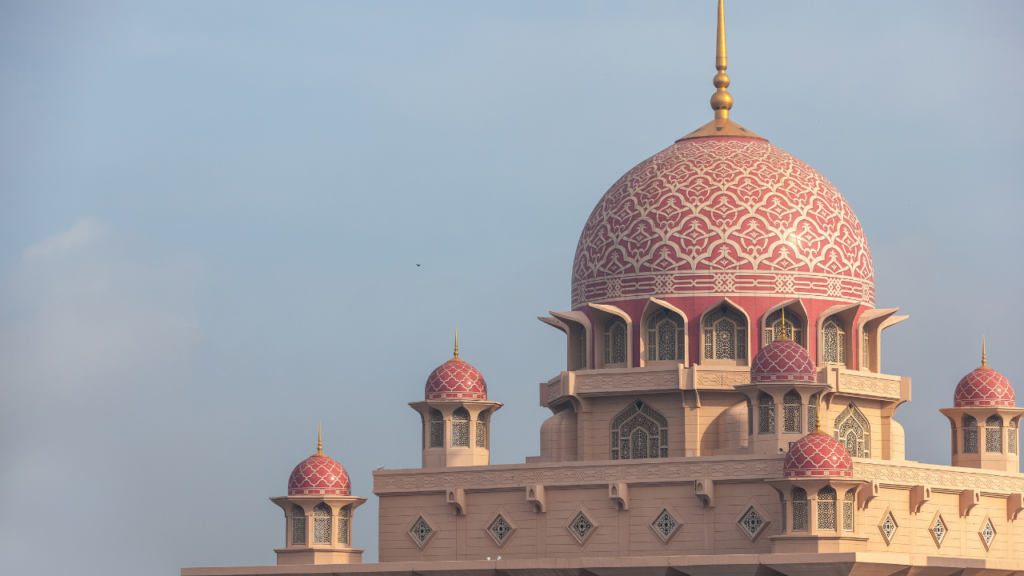How does God Exist in Islam?
Unveiling the Profound Concept of God's Existence in Islam

How does God Exist in Islam?
The fundamental concept is known as Tawhid, which asserts the absolute oneness of God. Allah is considered unique, indivisible, and incomparable.

Introduction
In Islam, the belief in the existence of God, or Allah, is at the very core of the faith. This belief in the divine presence is not only central but is also the fundamental tenet upon which the entire religion is built. Muslims around the world uphold this belief as an unwavering truth and a source of spiritual guidance. The existence of God in Islam is understood through a complex tapestry of theological and philosophical ideas that have evolved over centuries. This article delves into the concept of God’s existence in Islam, exploring the theological, philosophical, and experiential aspects that define this belief.
Theological Foundations
The Islamic understanding of God’s existence is rooted in the concept of Tawhid, which is the absolute oneness of God. Tawhid means that Allah is unique, indivisible, and incomparable. The Quran, the holy book of Islam, emphasizes this concept repeatedly, with verses such as, “Say, He is Allah, [Who is] One, Allah, the Eternal Refuge. He neither begets nor is born, nor is there to Him any equivalent” (Quran, 112:1-4). This unequivocal oneness of God forms the foundation of Islamic monotheism.
God’s existence in Islam is also affirmed through the idea of divine attributes or Asma ul Husna, which are the beautiful and perfect names of Allah. These names reflect various attributes of God, such as the All-Merciful (Ar-Rahman), the All-Knowing (Al-Alim), the Most Gracious (Ar-Rahim), and the Most Powerful (Al-Qawi). These attributes describe the nature of God and are essential in understanding His existence.
Also check.
- Where did Islam Originate?
- When was Islam Founded?
- What is the Holy Book of Islam?
- Who is the Wessiah in Islam?
- Who is the Wessiah in Islam?
Philosophical Perspectives
Islamic philosophy has contributed to the understanding of God’s existence through various schools of thought, most notably the Ash’arite and the Maturidite traditions. These philosophical approaches aim to reconcile reason and revelation.
The Ash’arite school, for instance, emphasizes the idea of occasionalism. According to this view, God is the sole cause of all events in the universe, and everything that occurs is a direct result of His will. In this sense, God’s existence is reaffirmed by His constant involvement in the world.
On the other hand, the Maturidite school places a greater emphasis on human free will and causality. While they still uphold the concept of divine predestination, they also allow for a certain degree of human agency in shaping one’s destiny. This perspective argues that God’s existence is evident through the natural order and the complex balance of creation.
Experiential Faith
For many Muslims, the existence of God is a deeply personal and experiential belief. It goes beyond philosophical and theological discussions and is rooted in their daily lives. The act of worship, prayer, fasting, and charity serves as a direct connection with God and a constant reminder of His existence.
Muslims also experience the presence of God through moments of reflection and spiritual contemplation. The Quran encourages believers to ponder the signs of God in the natural world, saying, “Indeed, in the creation of the heavens and the earth, and the alternation of the night and the day, and the [great] ships which sail through the sea with that which benefits people, and what Allah has sent down from the heavens of rain, giving life thereby to the earth after its lifelessness and dispersing therein every [kind of] moving creature, and [His] directing of the winds and the clouds controlled between the heaven and the earth are signs for a people who use reason” (Quran, 2:164).
Conclusion
The existence of God in Islam is a fundamental belief that encompasses theology, philosophy, and personal experience. Through the concept of Tawhid, the divine attributes, and philosophical traditions, Muslims affirm the oneness and existence of God. For many, this belief is a source of solace, guidance, and purpose in life, shaping their actions and interactions with the world. As the Quran states, “It is Allah who created the heavens and the earth and whatever is between them in six days; then He established Himself above the Throne. You have not besides Him any protector or any any intercessor; so will you not be reminded?” (Quran, 32:4). In Islam, the existence of God is a timeless truth that continues to inspire and guide millions of people around the world.

FAQs
What is the fundamental concept of God’s existence in Islam?
The fundamental concept is known as Tawhid, which asserts the absolute oneness of God. Allah is considered unique, indivisible, and incomparable.
How is the existence of God affirmed in Islam?
God’s existence is affirmed through the Quran, which contains verses emphasizing the oneness and attributes of Allah. Additionally, Islamic philosophy provides rational arguments for God’s existence.
What are the divine attributes in Islam and how do they relate to God’s existence?
The divine attributes, known as Asma ul Husna, describe various aspects of God’s nature. They serve to reinforce the understanding of God’s existence and His qualities, such as mercy, knowledge, and power.
Can you explain the philosophical perspectives on God’s existence in Islam?
Islamic philosophy includes schools of thought like the Ash’arite and Maturidite traditions. Ash’arites emphasize occasionalism, where God is seen as the sole cause of all events. Maturidites allow for human free will and causality while recognizing God’s predestination.
How do Muslims experience God’s existence in their daily lives?
Muslims experience God’s existence through acts of worship, prayer, fasting, and charity. These rituals provide a direct connection with God and serve as a constant reminder of His presence.
Can you explain the role of nature in affirming God’s existence in Islam?
The Quran encourages believers to reflect on the signs of God in the natural world. The beauty, order, and complexity of the universe are seen as evidence of God’s existence.
Is belief in God’s existence a personal or collective experience for Muslims?
It is both personal and collective. While there are shared beliefs, Muslims also have individual, personal experiences of God’s presence and guidance in their lives.
How does the belief in God’s existence impact the daily lives and actions of Muslims?
Belief in God’s existence shapes every aspect of a Muslim’s life. It influences their moral choices, interactions with others, and their sense of purpose and meaning.
What role does reason and revelation play in understanding God’s existence in Islam?
Reason and revelation are both important. Islamic theology emphasizes the importance of using reason to understand the existence of God while recognizing the guidance provided by revelation, primarily through the Quran.




